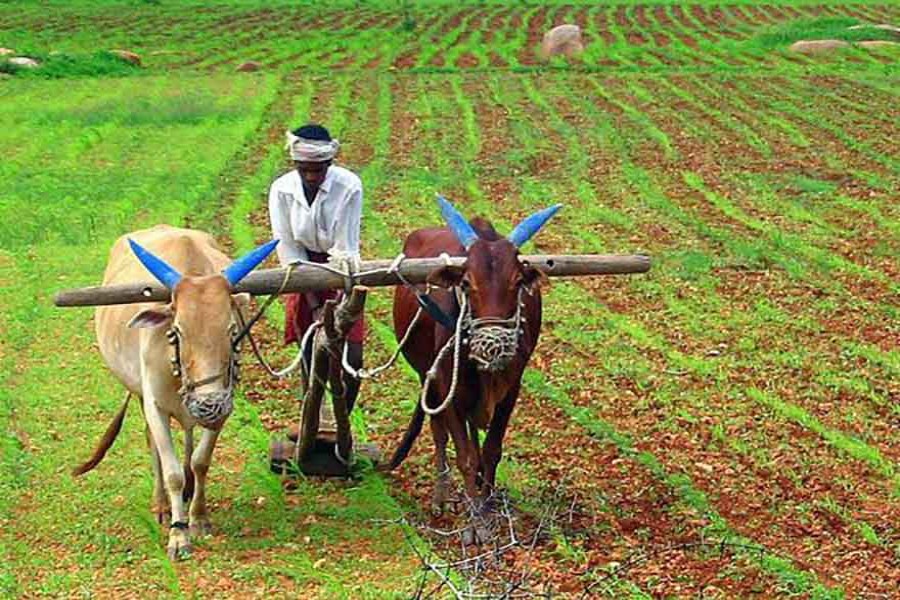A group of researchers from The Center for Development Research (ZEEF), Bonn, throws interesting insights into small farms, poverty and productivity. However, they base their arguments on the basis of various research findings across the globe. Although Bangladesh is not bracketed in the reference of research, surely we could derive important lessons from the observations. Since small farms are homes to the majority of the poor in the world including Bangladesh, improving productivity and incomes of small farmers can significantly reduce poverty. In other words, one should search for the goods where the boat capsized. There are several ways to accomplish this objective of poverty reduction of small farms. Researches show that commercialisation and technological innovation for small farmers can help reduce poverty. Diversification from solely staple crop production, to the production of commercially high value crops is another avenue for reducing poverty among small farmers. It has also been observed that in selected parts of India, diversification to vegetable production increases profits among small farmers. Some experts have found that farmers in Indonesia, shifting from coffee to cocoa production following the Asian economic crisis in 1997-98, may have increased their incomes by 14 per cent. "Diversification typically may also involve specialisation at the farm level, with growing varieties of production and processing at the regional level. However, not all small farms could immediately benefit from liberalisation and higher degrees of commercialisation. Therefore, the timing, speed and extent of reforms need to be appropriately fine-tuned to avoid exposing small farms to additional market risks they are unable to cope with. Leaving to markets to sort this out by themselves may not work due to market and institutional imperfections in many developing countries, especially when stakes are high, as the livelihoods of millions of small farming households depend on the success of these reforms".
Obviously, not all small farms are to be economically viable, especially in the context of increasing opportunity costs of labour due to higher wage growth rates in non-farm sectors. Already many small farmers are engaged in rural multiple income generating activities. Presently, about half of earnings of rural households in Asia come from non-farm sector. The researchers tend to argue that pluri-activity is not a mere survival strategy for small farmers but also a strategy to increase incomes due to lower labour requirements in the farm. This indicates that, in any case, improving access to non-farm jobs is another critical aspect of poverty reduction among small farmers. The researchers then invoke two-pull theory of migration across occupations namely, the push and pull scenarios. In the case of pull scenario, dynamic agricultural development stimulates the growth of non-farm sector - the way it happened in many Asian economies, whereas in the push scenario, stagnant agriculture and falling productivity forces rural households to seek, mainly in Africa, whatever incomes and livelihoods outside agriculture. Thus, push scenario may not necessarily lead to an escape from poverty for many rural households. In both cases, there is a need for creating conditions for orderly outmigration of labour from farm sector to non-farm and even from rural areas to urban areas, especially in Asia, given the magnitudes of these population movements.
Led by Joachim von Braun, the research also leads us to another dimension - vulnerability of small farms. The Human Rights Council Advisory Committee of the UN General Assembly indicates that family farms are most vulnerable to the violation of their rights, including their land rights that could lead to social conflicts, social marginalisation and exclusion. "Moreover, policies to improve land rights should also give prominence to the land rights of women. In many Asian settings, existing tenure systems are gender-biased favoring males in the farming households. Research shows that secure land tenure provides stronger incentives for adopting new improved technologies, and making longer-term investments into sustainable land management practices. Promotion of the "Voluntary Guidelines on the Responsible Governance of Tenure of Land, Fisheries and Forests in the Context of National Food Security" is an important step forward, but needs to be institutionalized and implemented at the national levels. Moreover, the envisaged outcome behind land reforms targeted at securing land rights need to be poverty reduction and enhancing the food security among the rural poor, preventing potential "elite capture" which may defeat the purpose of securing land rights for smallholders.
In conclusion, the authors seem to argue that agriculture is driven by economic and sociological forces, and agriculture itself is also driving change in the economy and society. Some of the changes may or may not suit small farms. Market value webs, increasingly dominated by supermarkets, with controlled quality standards are raising the transaction costs making it difficult for small farms to enter these markets. For example, researchers find that current certification standards for aquaculture may not be feasible on the small farmers scale in Vietnam but some, on the other hand, cannot find evidence that large-scale buyers prefer not to have contract farming arrangements with small farms in Shandong province in China, though it is acknowledged that all farms in their area of study are small. Crucially, contract farming was found to lead to higher farmer incomes. Similarly, it could also be observed that the participation in contract farming was negatively related to farm size in the tobacco production in the Philippines, with smaller farms being able to reap more benefits from contract farming. A study on contracting from Indonesia shows that contracts may have increased returns to capital for the seed corn and broiler producers, but not for the seed rice producers .
By and large, "the challenge is to enable small farmers to successfully integrate and benefit from these new market webs or find non-farm employment. Market access for small farms could be improved in several ways, such as through collective action and forming producer and marketing associations".
Abdul Bayes is a former Professor of Economics at Jahangirnagar University. [email protected]


